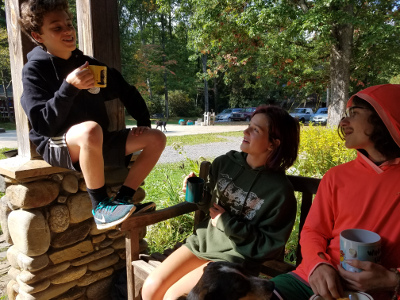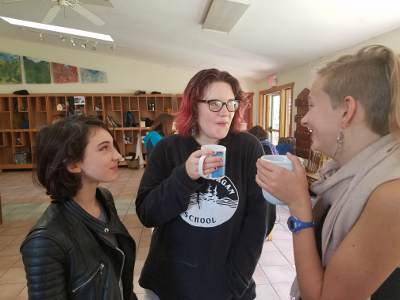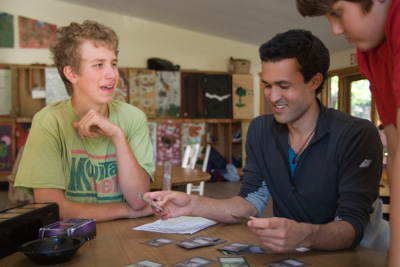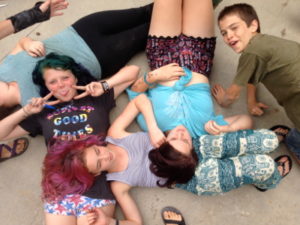How to Teach Students Decision Making

Lots of educators get excited about the concept of a student-run school. They picture an academic utopia in which students demonstrate both passion and responsibility for their education. The students would plan activities and classes. They would discuss school policies in small committee meetings and set up norms and rules that would be advantageous to their academic pursuits. It’s a perfect world of cooperative education, in which the hard line between teachers and students blurs, and everyone is working toward a common goal of learning.
Fantasy vs Reality
 Of course for many student run schools, the truth is very different from reality. When told they have power to control their educational environment, many students simply shrug and go along with the status quo. They may ask for a small change or two to the schedule or a modification to the lunch menu. However, for the most part, they seem disinterested in really making changes. So what’s the best way for educators to encourage students to make decisions? How can teachers get students excited about creating an educational environment that’s tailored to them? In other words, what’s the best way to teach students decision making?
Of course for many student run schools, the truth is very different from reality. When told they have power to control their educational environment, many students simply shrug and go along with the status quo. They may ask for a small change or two to the schedule or a modification to the lunch menu. However, for the most part, they seem disinterested in really making changes. So what’s the best way for educators to encourage students to make decisions? How can teachers get students excited about creating an educational environment that’s tailored to them? In other words, what’s the best way to teach students decision making?
One solution is to build their confidence. When asked, many students say they enjoy making decisions. Ian, an alumnus of Arthur Morgan School remembered, “It was scary to be in a new place where you have more power than you are used to.” After years of indoctrination from a top down educational system, they don’t believe they are intelligent or creative enough to make decisions about what’s best for them. Some of them don’t even believe that adults will care what they have to say. “I didn’t think the staff would listen because I didn’t know any of them,” says Lillian, another alumna from AMS. To combat this reasoning, educators need to put their beliefs to the test by giving students responsibility before they ever ask for it.
Don’t Make Decisions for Them
 Each fall, AMS has a Saturday night sleepover. It is a fun night in which students and staff bond and have fun with one another. It is also entirely student-run. The students are provided boundaries, like the start and end time of the event, but everything else is up to them. Through All School Meeting and committees, they make all the decisions. They decide their bedtime to the menu to what activities they will do. Older students share with newer students the spirit and reasoning behind the event. They offer memories of what has been done in the past, but also encourage new ideas. The students feel like they are part of a school tradition. They feel responsible both to the community and to school’s history.
Each fall, AMS has a Saturday night sleepover. It is a fun night in which students and staff bond and have fun with one another. It is also entirely student-run. The students are provided boundaries, like the start and end time of the event, but everything else is up to them. Through All School Meeting and committees, they make all the decisions. They decide their bedtime to the menu to what activities they will do. Older students share with newer students the spirit and reasoning behind the event. They offer memories of what has been done in the past, but also encourage new ideas. The students feel like they are part of a school tradition. They feel responsible both to the community and to school’s history.
Staff are not completely left out of the event planning. As participants in the sleepover, they have a voice too, but they are not decision makers. Often, students will try to hand decisions over to staff. If an argument breaks out, a student may say, “Let’s just let staff settle this!” However, staff will only offer opinions or preferences without making any decisions. In this way, students have their first experience in figuring out how to listen and compromise. Naomi, a seventh grader at AMS reflected on the experience, “I felt responsible being able to make decisions. I like being helpful.”
Dreams Come True

Sleepovers is small low stakes event, but the process of putting students in charge of it sets the stage for them to be more active in running their school. Once sleepovers is over, students feel accomplished. They feel more confident to speak up in All School Meeting. They understand how committees work and use them to plan their own activities. As a result, AMS students are willing to propose major changes to the school’s curriculum and class offerings. It’s an accomplishment many student run schools only dream about. By simply giving them the chance to practice their decision making skills in a fun and engaging way, sleepovers brings that utopic vision of student-run schools one step closer to reality.
-By Nicholas Maldonado
